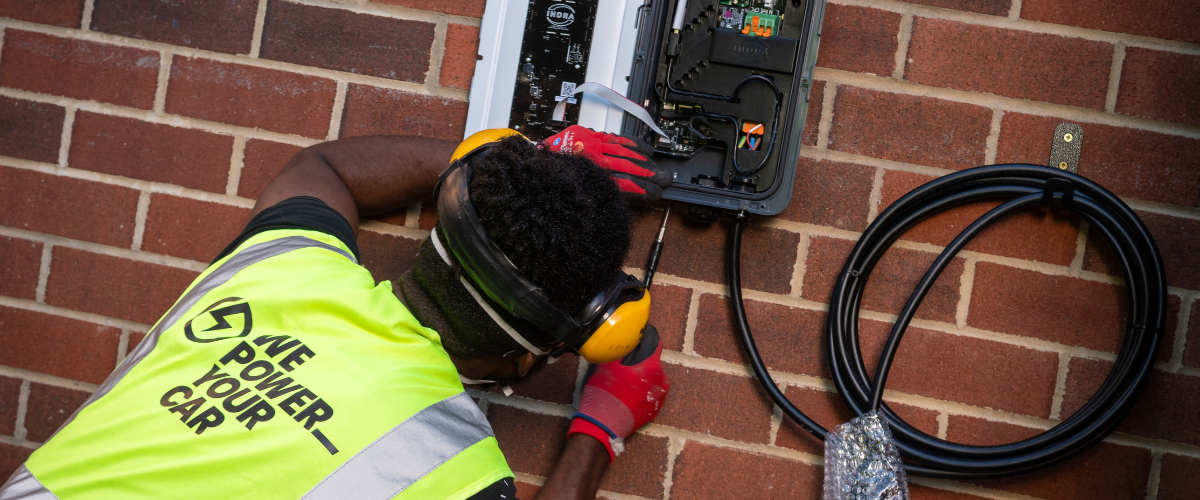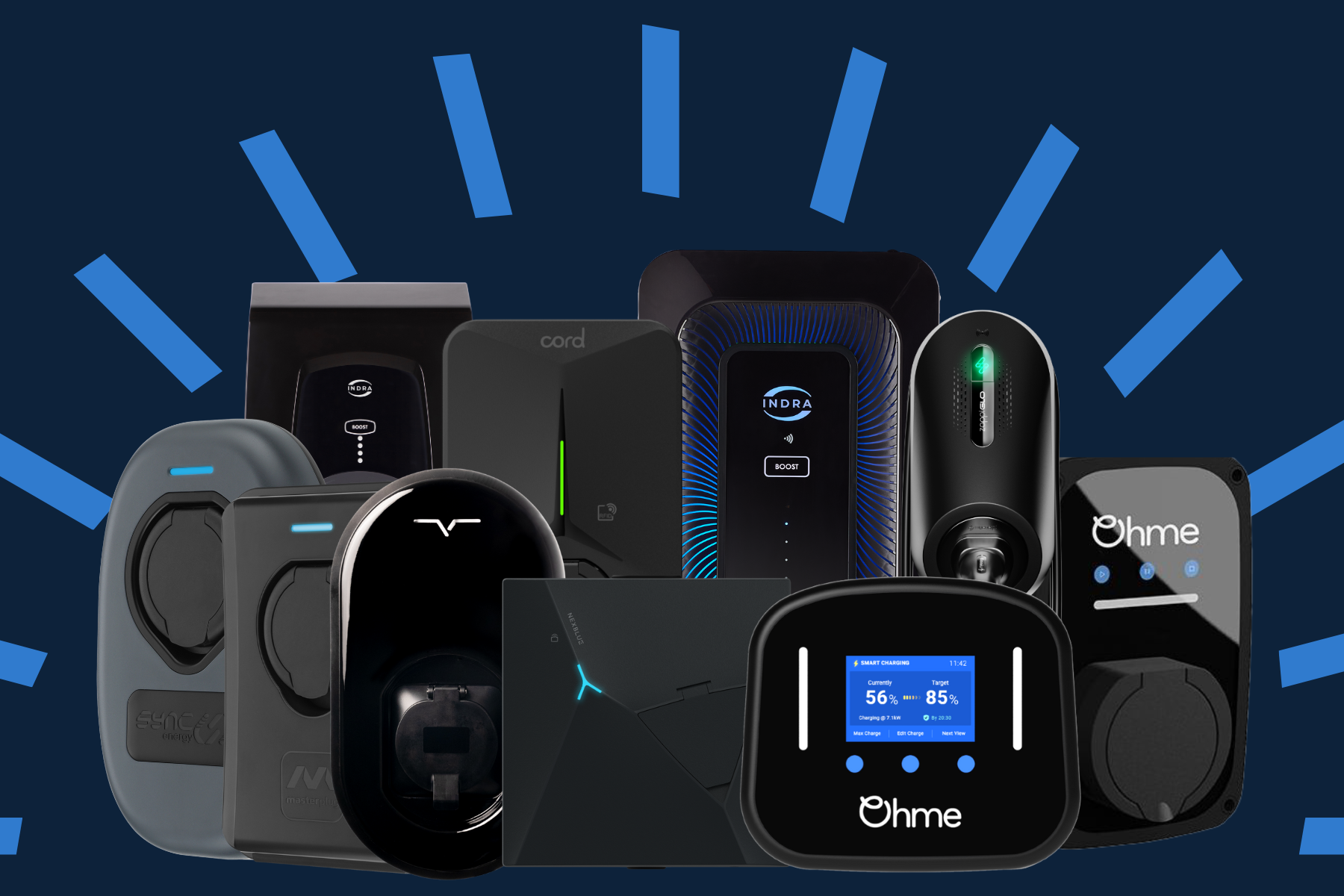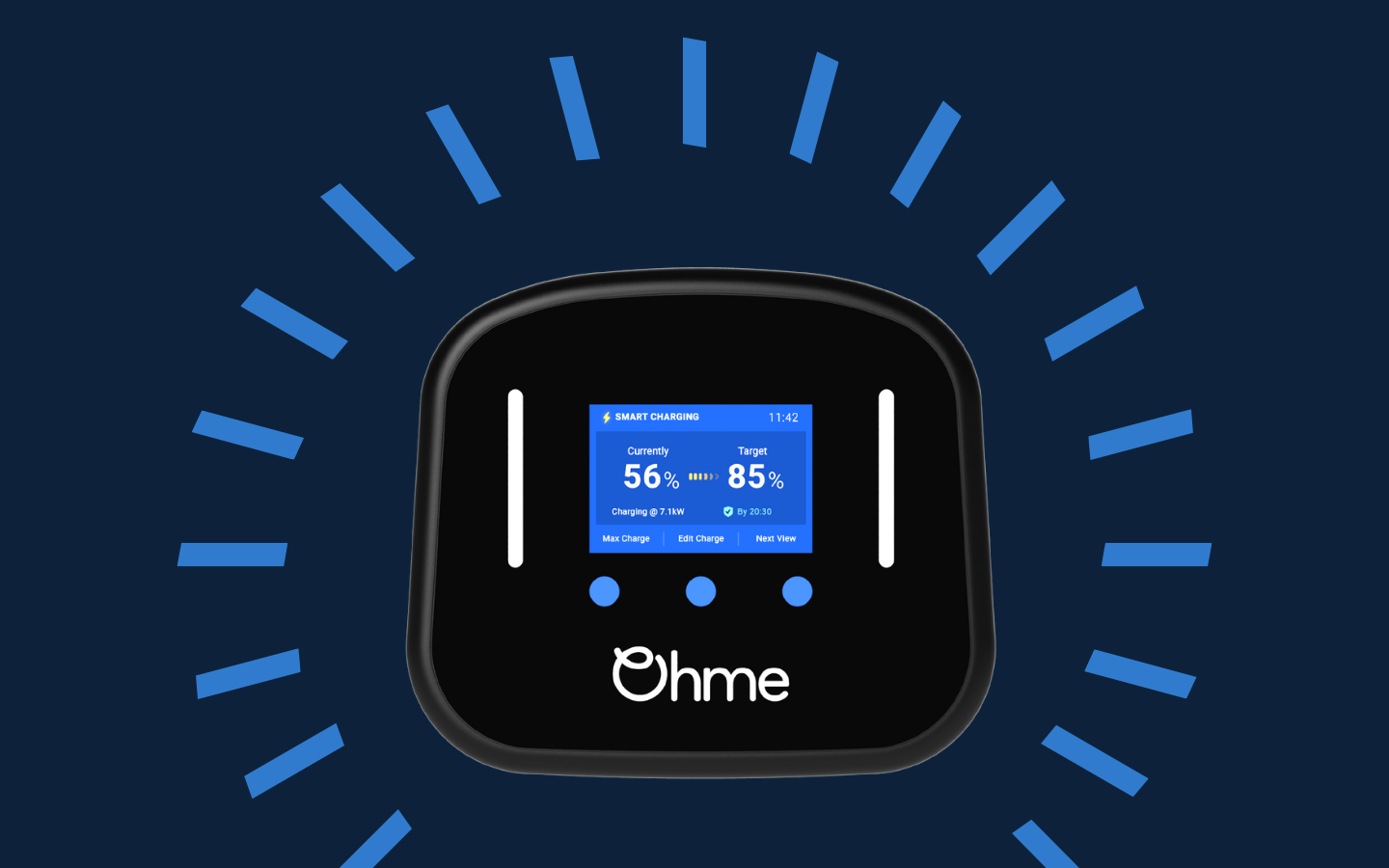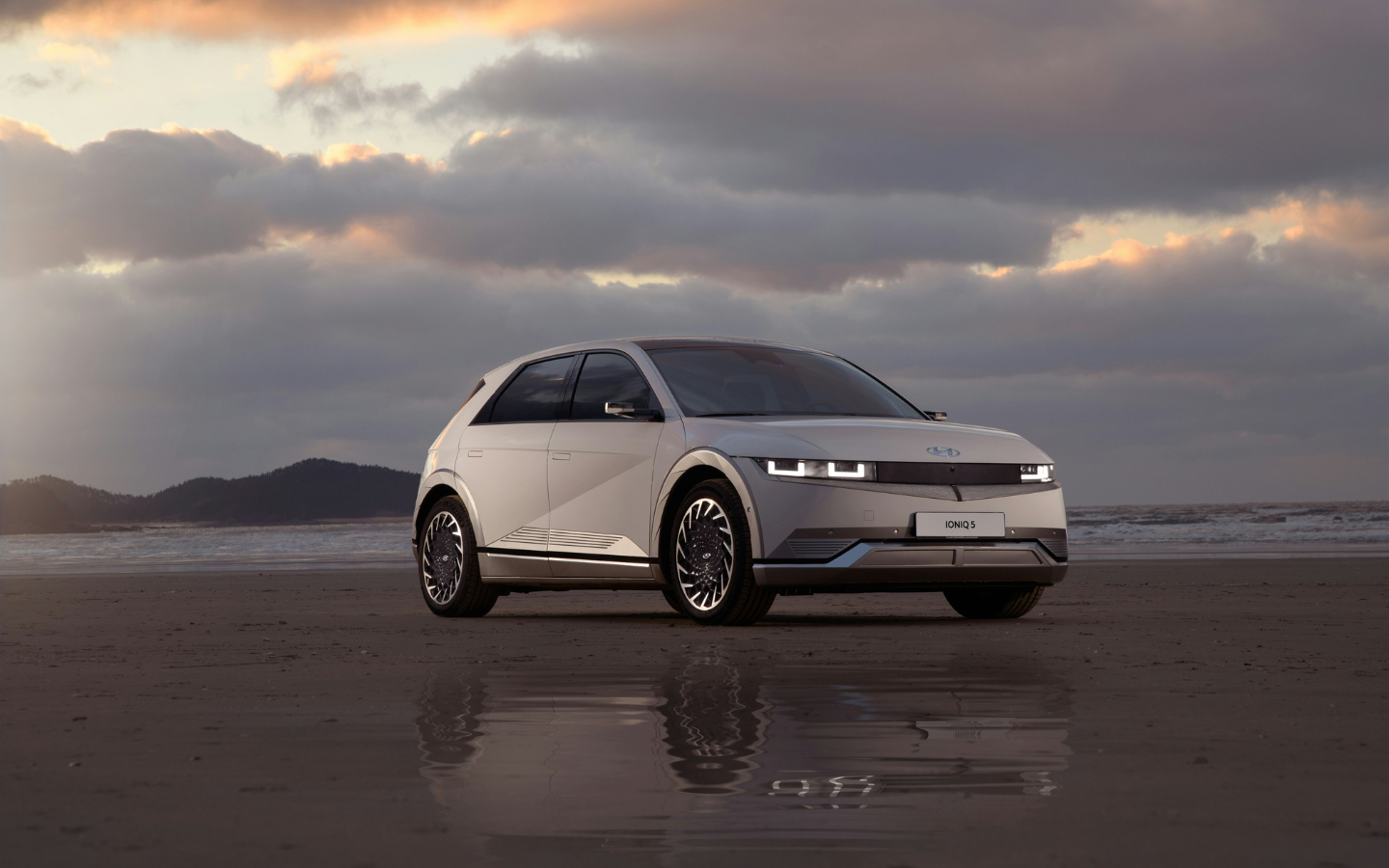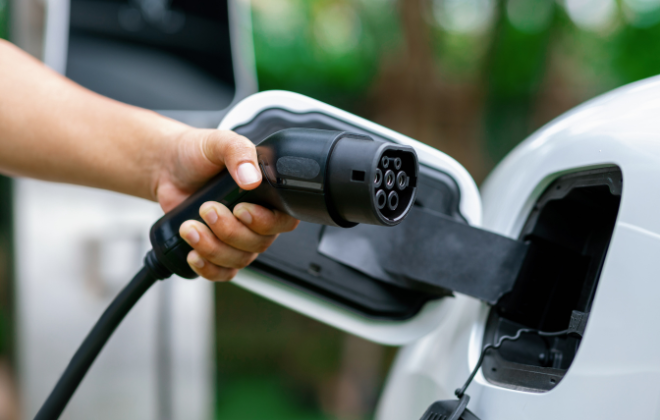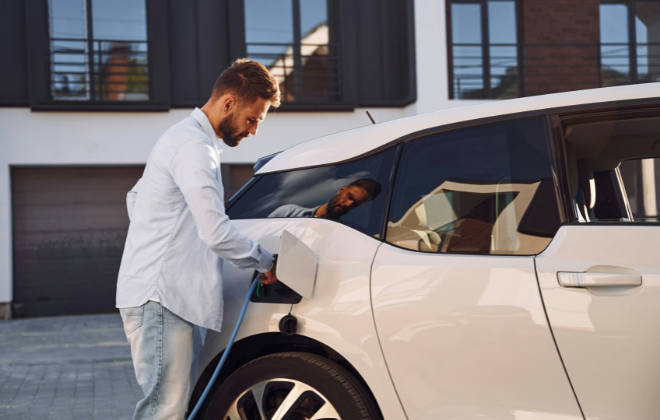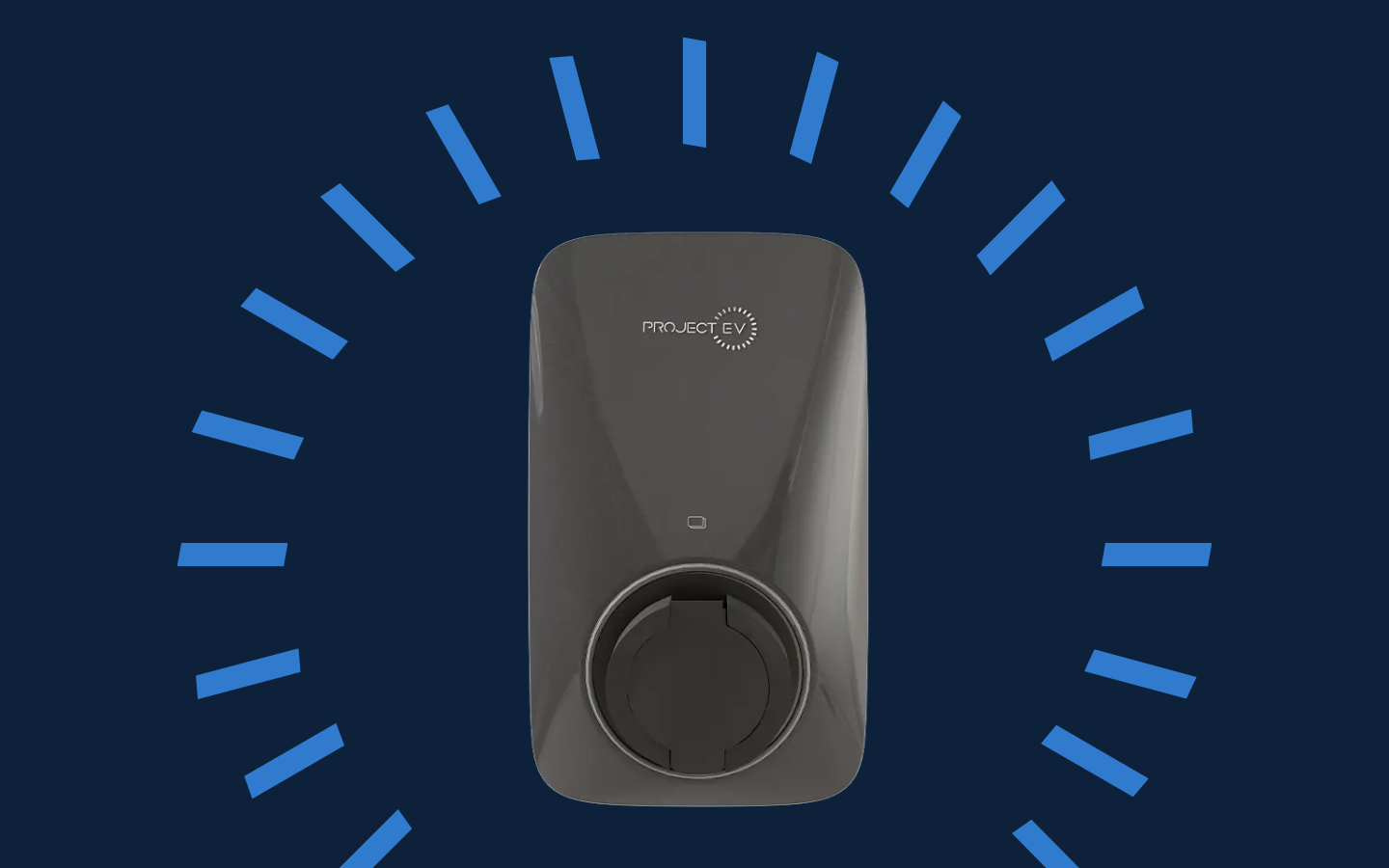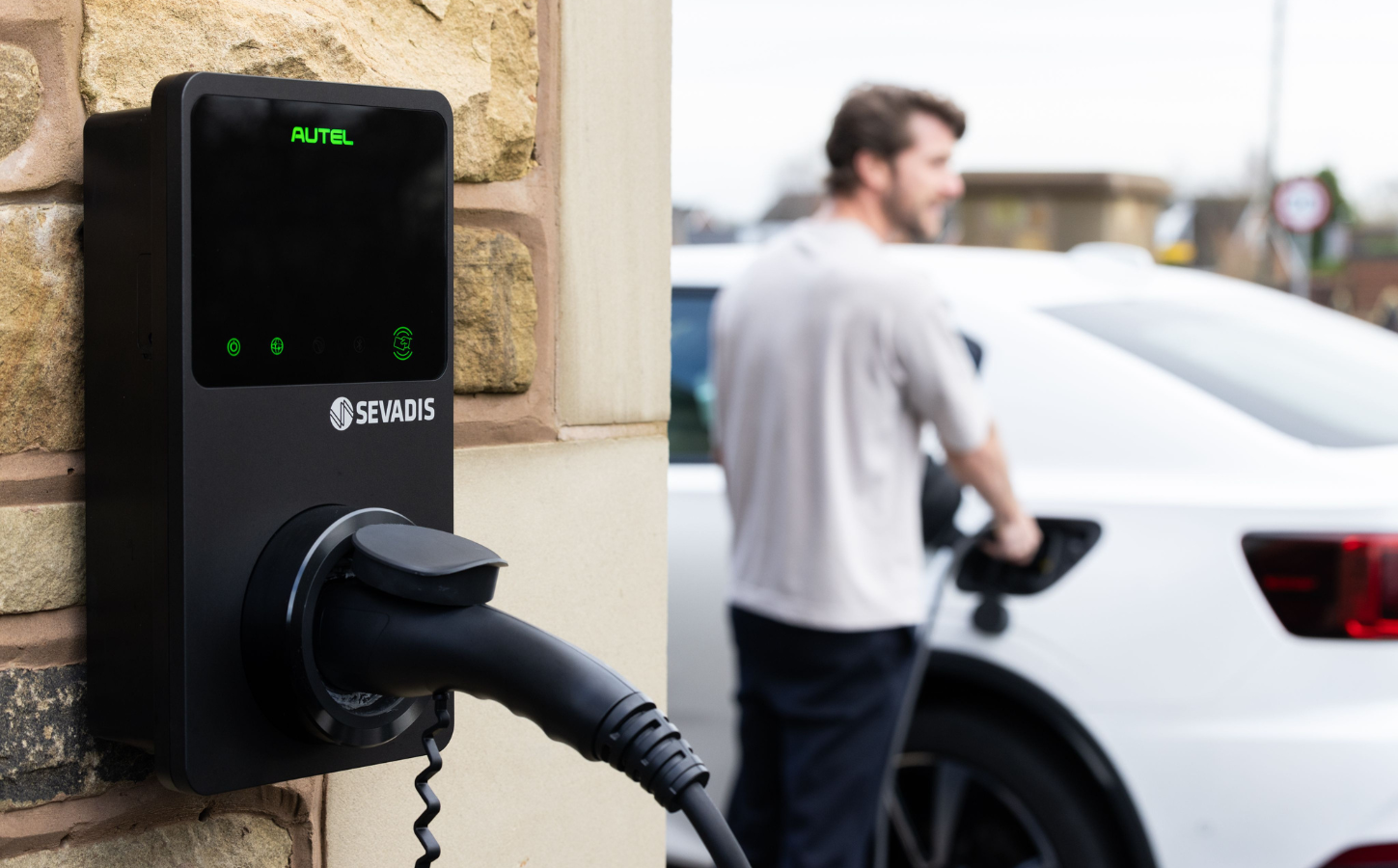

Can I charge my electric car without a dedicated home charger?
If you don’t have off-street parking, you, unfortunately, won’t be able to get a dedicated home EV charger, and you may be worried about how you are going to charge your EV. Or perhaps you do have off-street parking, but you are not ready to invest in a home electric vehicle charger just yet. If either of these sounds like you, you may be wondering, can I still charge my EV without a dedicated home charger?
The answer, in short, is yes. Keep reading to find out how…

Public Charging:
Top up with Fast Chargers:
Top up your charge using fast charging points when out and about, or make a detour to fully charge. You can usually find these chargers at public destinations; supermarkets, public car parks and hotels are generally a safe bet, but you can also use Zap-Map to find your nearest public electric vehicle charger.
Whilst public fast EV charging may be convenient when nipping into town, such as doing your weekly shop or hitting the gym, it can be time-consuming. Fast public chargers come as either 7kW or 22kW, which are the same ratings as dedicated home chargers. On average, for a Tesla Model S, it will take 11 hours to fully charge with a 7kW and 6 hours with a 22kW, which means you will have to keep yourself busy for quite a few hours if you are after a full charge. The specific charging times depend on your make and model, as different EVs will have different charging times. Some electric vehicles might also not have an on-board charger capable of charging over 7kW, such as the Nissan Leaf, meaning you will be there for longer. However, it is less convenient to charge for these lengths of time in public, compared to charging at home.
Furthermore, it’s important to note that some public charging stations do charge or require an in-store purchase, increasing the cost of charging your electric vehicle.
Fill up with DC Rapid Chargers:
Usually found in more obscure places, such as motorway service stations, DC rapid charging is the fastest way to charge your electric vehicle. This is due to the 50kW rating, meaning you can charge your electric vehicle up to 80% in approximately 20 minutes.
While it’s the quickest way to charge, it is not recommended to use a rapid DC regularly. Typically, DC charging is meant for longer journeys or if you need to charge quickly, as continued use can damage your battery.
Overall, if you are going to rely on public charging, you don’t have to worry, as there are over 30,000 charging points across the UK in over 18,000 locations, according to Zap-Map. This is especially the case if you are from the Greater London area or the South East, as Zap-Map found these areas to have more electric vehicle charging points than elsewhere in the country.
However, the lack of convenience and the potential damage to your battery are issues to consider.
Explore the difference between fast and rapid electric vehicle charging.
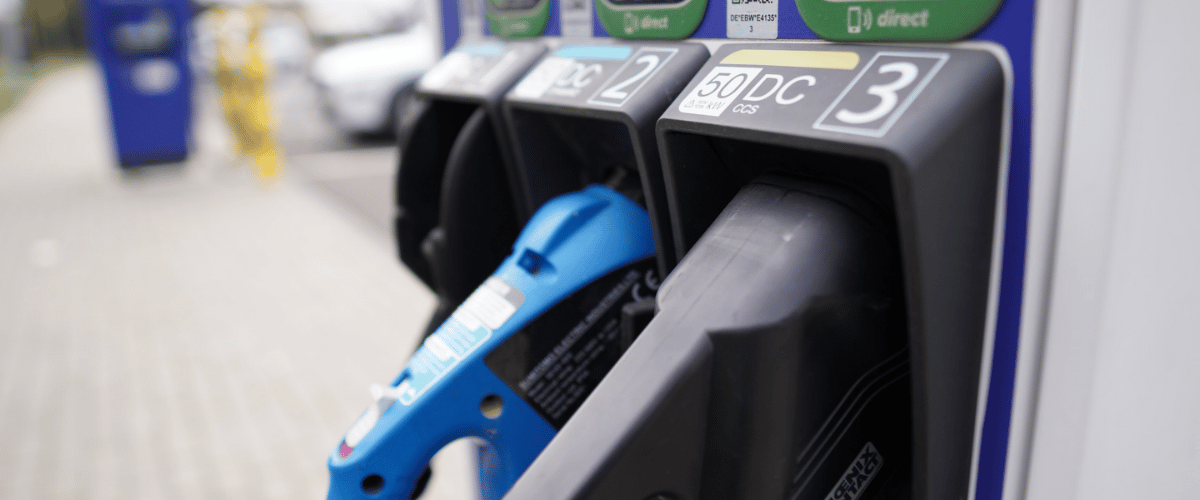
3-Pin Plug Charging
3-pin plug charging is where you use a standard three-pin domestic socket in your home to charge your EV. To do so, you will need a 3-pin plug car charger, either in the form of a Type 2 to 3 pin charging cable or a Type 1 to 3 Pin charging cable. More often than not, you will have received the relevant cable when you purchased your car; however, it can differ between manufacturers.
Whilst you can charge at home with this option, there are some severe drawbacks to 3-pin plug charging, such as:
- Using 3-pin charging is the slowest way to charge your electric vehicle; it can take over 18 hours for a full charge, whilst a 7kW charger is three times faster
- 3-pin plug charging can be dangerous due to the continuous strain on the circuit
- Using a 3-pin charger is inconvenient for everyone due to the various cords and wires from your EV to the plug socket
- You don’t have access to a wide range of exciting smart features with 3-pin plug charging
Realistically, 3-pin plug charging is only recommended in emergency or one-off cases.
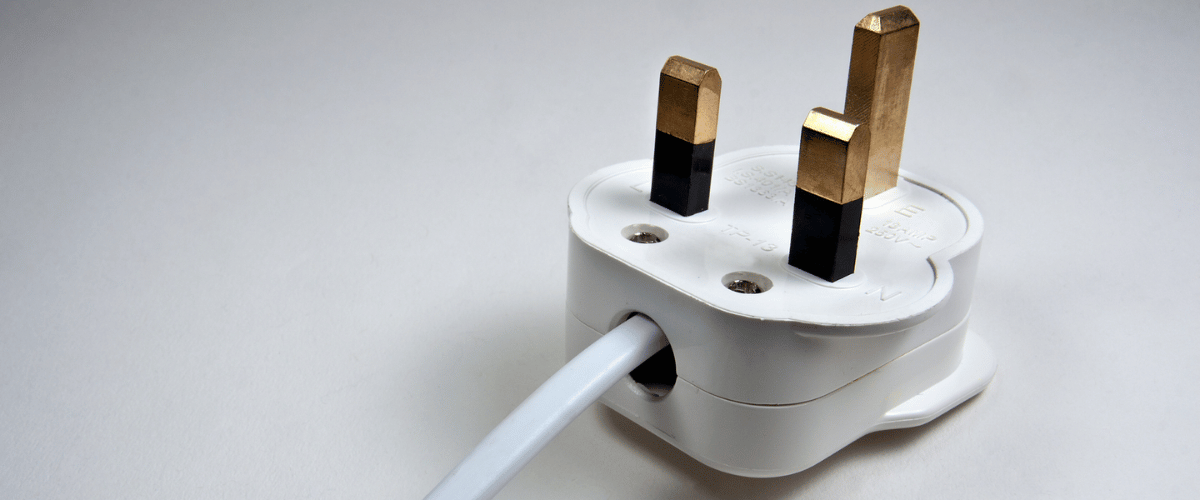
Workplace Charging
Your employer may have already taken the transition to electric into their own hands, meaning you can charge your EV at your workplace. This is convenient as you can charge whilst working and save money.
If they haven’t invested in electric vehicle chargers, maybe ask them if there are any plans in the works? After all, there is the Workplace Charging Scheme that reduces the purchase and installation cost of electric vehicle charging points for the workplace by 75%, up to £350 (including VAT) per socket, with a maximum of 40 grants available. It is even expanding this year to include small accommodation businesses.
Some of the main benefits of investing in EV chargers for your business include future-proofing your business and making your workplace more attractive to both customers and employees.
Unfortunately, you will have to stick to the public charging points if you work from home.
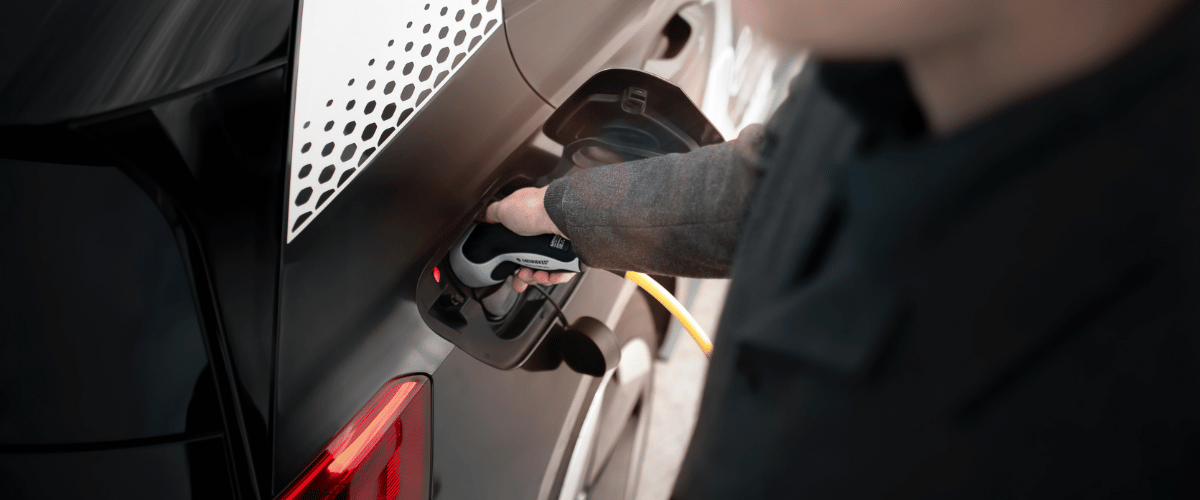
But a dedicated home charger does have its advantages…
- Increase your property value
- More convenient
- Charge three times faster than a 3-pin plug
- Safer
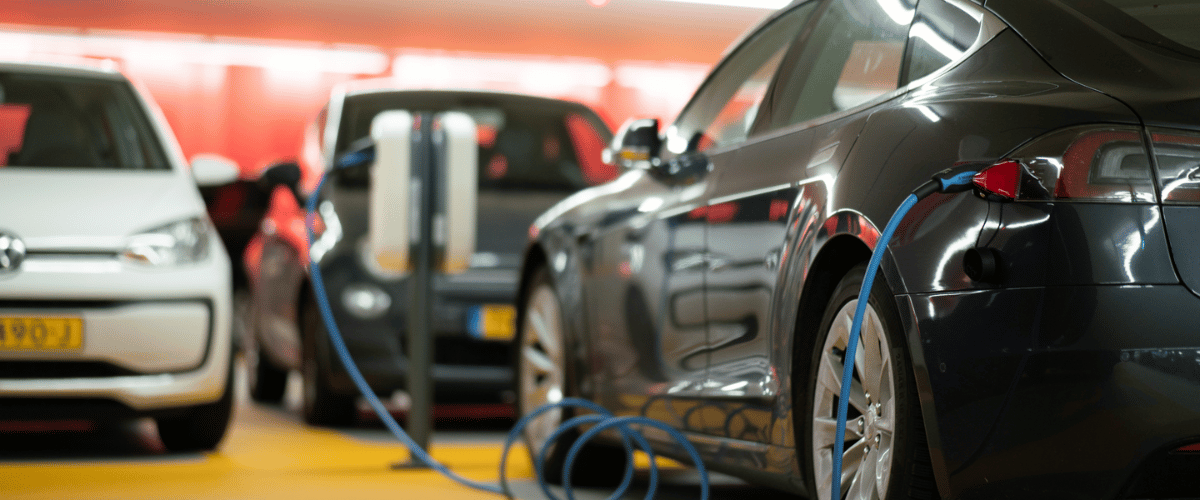
Are you looking to get a smart EV charger installed? We Power Your Car can sort it for you.
If you are thinking about getting an EV charger installed either at home or at work, contact us for helpful and unbiased advice. We install nationwide with quick installation times.
For more information and our latest updates, follow us on Facebook, Instagram, Twitter, LinkedIn and YouTube.
